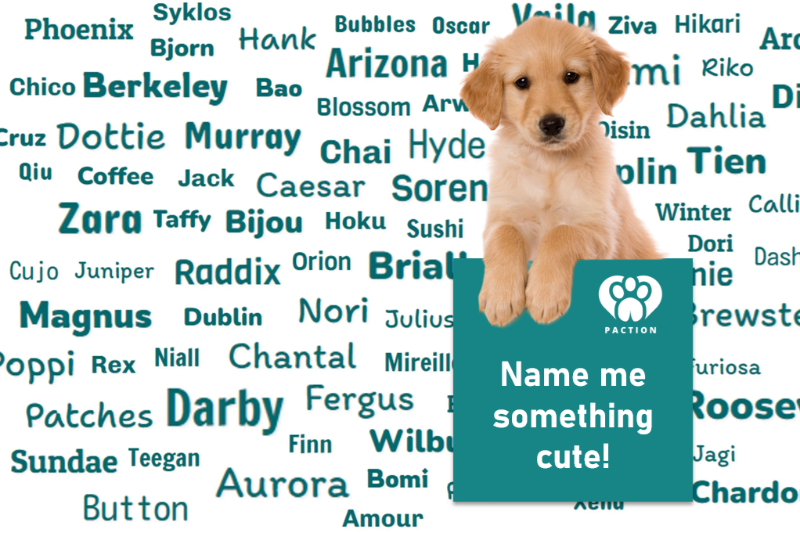Miniature Schnauzer
Find Miniature Schnauzer Breeders Near You
Connect with certified breeders who have Miniature Schnauzer puppies available.
Find Miniature Schnauzer BreedersGet to Know Miniature Schnauzers
- Not Technically Terriers: However, they but act like them. Though often grouped with terriers due to their feisty and energetic nature, Miniature Schnauzers belong to the Working Group in some registries, and to a Non-Sporting Group in others. Their temperament is terrier-like, but their lineage is different.
- Distinctive Beard & Eyebrows: These features aren’t just for show. The iconic facial hair of the Schnauzer was originally functional, helping to protect their face from bites while ratting. It also makes grooming a must — the beard can trap dirt and food if not cleaned regularly.
- Three Classic Colours: Miniature Schnauzers are recognized in salt and pepper, black, and black and silver. Each has distinct coat patterning and may require slightly different grooming techniques to maintain their color and texture.
- Excellent Watchdogs: Miniature Schnauzers are sometimes too good at being on the lookout. They're naturally alert and protective. They tend to bark at anything unfamiliar, which makes them excellent watchdogs but may require training to avoid nuisance barking.
- Family Dogs: They’re great for families and adaptable to various lifestyles. Whether in a house with a yard or a city apartment, Miniature Schnauzers adapt well. They love children, enjoy being active, and are equally happy curling up on the couch after a good play session.
Breed History
The Miniature Schnauzer was developed in Germany in the late 19th century by breeding the Standard Schnauzer with smaller breeds like the Affenpinscher and possibly the Miniature Poodle. The goal was to create a smaller, more manageable farm dog that retained the Schnauzer’s ratting ability, guarding instinct, and distinctive appearance. Originally used for vermin control on farms and later as watchdogs, Miniature Schnauzers became beloved companions thanks to their lively personality, intelligence, and family-friendly temperament. They are the only terrier-type breed not developed in the British Isles, making them uniquely German in origin.
Personality and Behaviour
- Bold & Full of Personality: Miniature Schnauzers have a big-dog attitude in a small-dog body. They’re confident, expressive, and often act like the “boss” of the house, though never aggressively so when properly socialized.
- Deeply loyal & People-Oriented: This breed forms close bonds with its family and doesn’t like being left out of the action. They thrive on companionship and love to be involved in whatever their humans are doing.
- Vocal & Alert: They’re naturally tuned in to their environment and quick to sound the alarm. While this makes them excellent watchdogs, it can also mean frequent barking if not managed through training.
Care
- Exercise: They need daily activity and mental stimulation Mini Schnauzers are energetic and need regular exercise to stay happy. A couple of brisk walks and some playtime each day are ideal. Without enough activity, they may become bored and destructive.
- Grooming: Mini Schnauzer's high-maintenance coat requires regular upkeep. Their wiry double coat needs brushing a few times a week and professional grooming (clipping or hand-stripping) every 5–8 weeks. Their iconic beard also needs regular cleaning to stay fresh and mat-free.
- Training: Mini Schnauzers are smart and eager, but can be stubborn. They learn quickly but may challenge authority if they sense inconsistency. Positive reinforcement, firm boundaries, and early socialization will help them become polite and responsive companions.
Miniature Schnauzer Summary
What to ask your breeder?
Here's a short summary of what you should be asking your breeder:
Miniature Schnauzer Health Testing
| Screening | Considerations |
|---|---|
| ACVO Eye Exam | ACVO Eye Examination. Results registered with OFA. |
| Cardiac Evaluation | One of the following: Congenital Cardiac Exam by Cardiologist Advanced Cardiac Exam Basic Cardiac Exam by Cardiologist |
| Myotonia Congenita | (Optional) DNA-Based MC test from an approved laboratory. Results registered with OFA |
| Mycobacterium Avian Complex | (Optional) MYCOBACTERIUM AVIAN COMPLEX |
| PRA Type B HIVEP3 DNA Test | (Optional) DNA-Based PRA Type B test from an approved laboratory. Results registered with OFA |
How Much Does It Cost to Own a Miniature Schnauzer Per Year?
Determining the cost of owning a Miniature Schnauzer is essential for responsible dog ownership. Use our calculator to estimate expenses, including food, grooming, veterinary care, and more.
The Ultimate Dog Cost Calculator
 Calculate Now
Calculate NowFrequently Asked Questions About Miniature Schnauzer
When you talk to a breeder, you're not just asking “do you have available Miniature Schnauzer puppies?” You're looking for a match in the process of rehoming a dog. As a prospective dog owner, you are assessing how predictable the dog's health, temperament, and long-term welfare will be and whether the breeder's practices reduce avoidable risk.
You should engage in a conversation about the following topics:
- Which health tests and genetic screening do you do specifically for Miniature Schnauzer, and can I see the results?
- What do you do if a puppy develops a serious genetic condition? What contract, policies and support do you offer as a breeder?
- How are puppies raised from birth to 8+ weeks? Ask about socialization, philosophies on early neurological development, handling, and exposure.
The real cost of a dog isn't just the puppy price. After year one, the cost of a dog includes the predictable annual costs + the unpredictable “risk costs.” Your goal is to make the cost legible before you commit, as one of the top causes of surrendering a dog is not being able to afford the dog in later years.
To help you assess these costs, Paction has created the Ultimate Cost Calculator. You can also read an article written by a Paction breeder on why a prospective dog owner should focus on the ongoing costs of dog ownership and not “how much” the puppy costs.
Every dog breed has certain health issues that tend to occur more often, but what matters most is how predictable and preventable those risks are. For many breeds, common concerns include inherited conditions (such as orthopedic, eye, or cardiac issues) as well as lifestyle-related challenges like weight management, dental health, skin or ear problems, and anxiety.
Responsible breeders help reduce inherited risk through appropriate health testing, careful selection of breeding pairs, and transparency about family history. To understand more about responsible breeding programs that prioritize health and genetic screening of breeding pairs, check out Making Science Simple: Canine Genetics for Puppy Shoppers.
As an owner, you play an equally important role. Consistent preventive veterinary care, proper exercise and enrichment, healthy nutrition, and early screening can significantly improve long-term health outcomes.
Whether a Miniature Schnauzer is right for you depends less on the breed itself and more on how well its typical energy level, temperament, and care needs align with your daily life. Important factors include your schedule and activity level, living environment, household dynamics (such as children, other pets, or allergies), and tolerance for noise or independence. Long-term fit also comes down to maintenance like grooming, training needs, and how often you travel or rely on outside dog care.
Use Paction's Dog Breed Matchmaker and Pup Time Estimator to find out more about what dog is right for you.


